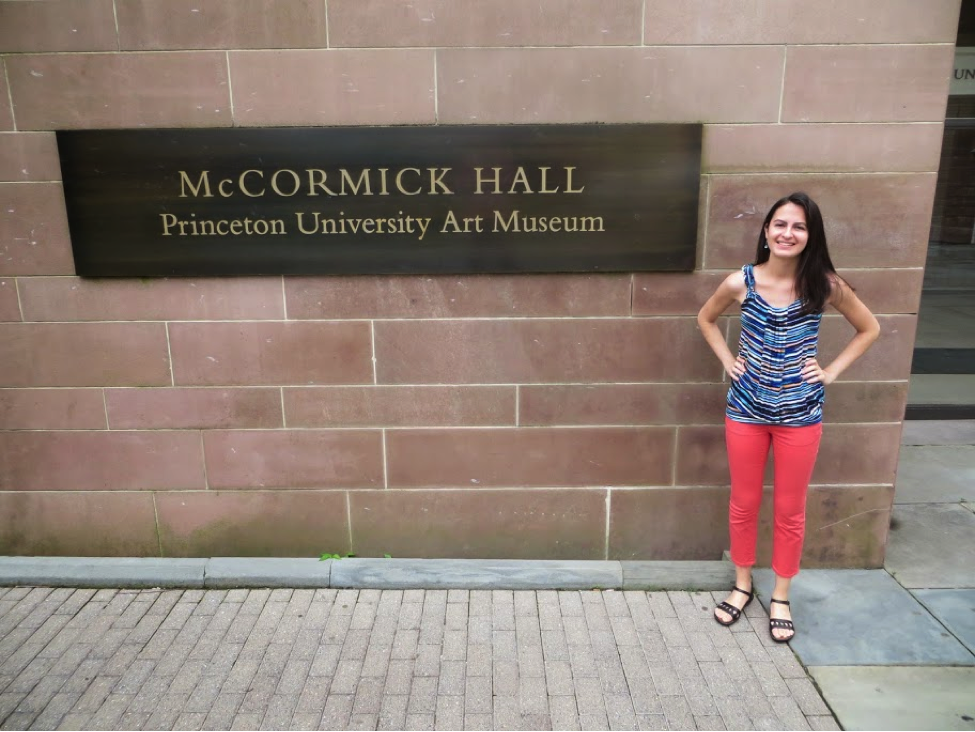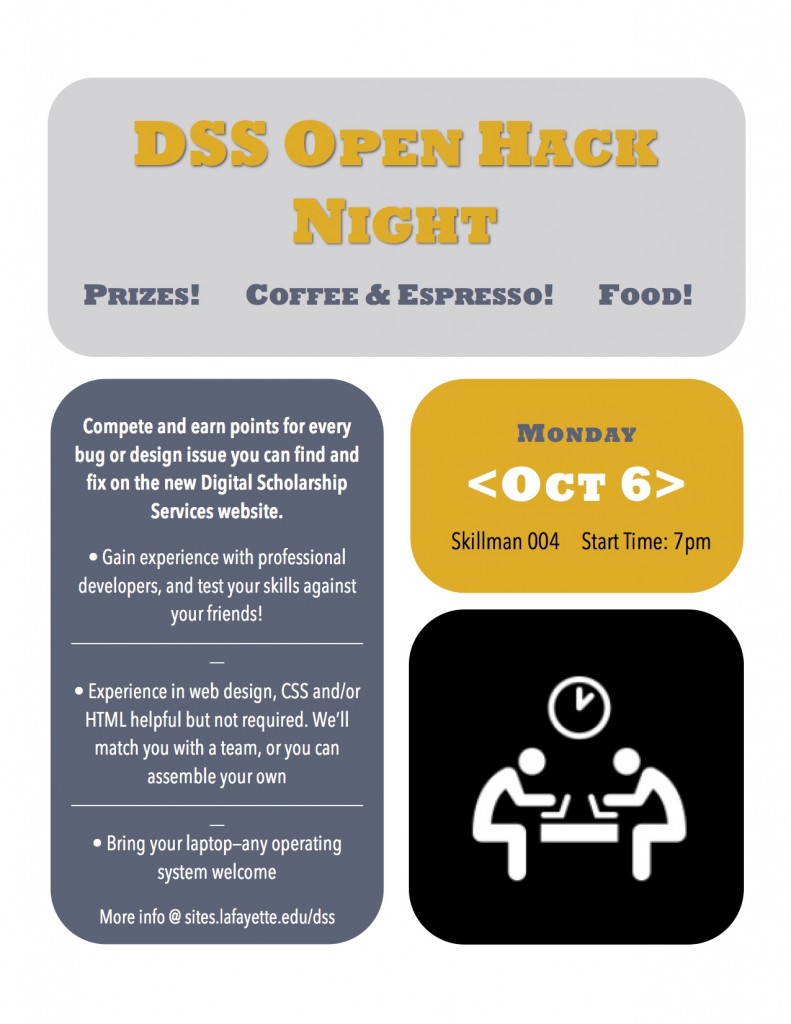Intern Alena Principato ’15 shares her experience at Princeton Art History conference

Alena Principato excited to attend the Digital World of Art History conference at Princeton University.
With plans to earn a Masters degree in Library and Information Science and pursue a career in academic librarianship after graduating from Lafayette, I was able to use my internship with Lafayette’s Visual Resources librarian Kelly Smith to learn more about the field.
As part of my internship I had the opportunity to attend a one-day conference at Princeton University titled “The Digital World of Art History.” The conference, organized by the Index of Christian Art and Princeton’s Visual Resources Collection and Department of Art and Archaeology, centered on the theme of “Standards and Their Application.”
Armed with enthusiasm for my first professional conference, I filed into McCormick Hall and prepared to learn about cutting edge digital art history projects along with dozens of other attendees. The agenda for the day consisted of a line-up of twelve speakers, ranging from librarians and academics to digital developers, and included professionals from various cultural institutions.
Some highlights from the presentations:
Christine Kuan, a representative of Artsy (artsy.net), kicked off the day with her presentation on Artsy, Technology, and the Power of Public Access. The mission of Artsy is to make art accessible to everyone through an online platform for discovering, learning about, and collecting art that is free to the public. The site features more than 100,000 high-resolution images of artworks.
The Art Genome Project, similar in concept to Pandora’s Music Genome Project, assigns specific values to characteristics of art and architecture—the “genes” of the artwork—and uses search algorithms to create associations between related artists and artworks. This system allows for what Kuan calls a “radial” process of searching, allowing users to discover new artists based on their preferences.
Dustin Wees and Margaret Smithglass presented for the Built Works Registry (BWR), an ongoing project “to create and develop a freely available registry and data resource for architectural works and the built environment.” The project is a collaboration between the Avery Architectural and Fine Arts Library at Columbia University, ARTstor, and the Getty Research Institute. The BWR imports data about works from multiple sources and seeks to standardize the title, date, and location of each work as well as assign it a unique ID number.
Set to launch this October, the BWR plans to eventually give its data to Getty to turn it into one of their authoritative databases. Resources like the BWR are important for standardizing the cataloging of visual resources by providing a controlled vocabulary to maintain consistency in cataloging across multiple institutions. In my experience cataloging with Shared Shelf, I’ve been using controlled vocabularies to assign subject tags to digitized prints produced by the Experimental Printmaking Institute. (Read more about this in my previous blog post.)
Following the afternoon presentations was a reception inside the art museum, which provided a beautiful atmosphere for networking mixed with art appreciation. Overall, the conference was a great learning experience that expanded my understanding of the possibilities for digital projects involving visual resources collections and fueled my excitement about the direction in which the field is heading.
DSS is actively seeking students from across campus and across disciplines to participate in our internship program. With us you’ll learn hands-on skills in digital scholarship, computer programming, application design, and data preservation. You’ll earn work experience while learning from a professional team on the cutting edge of digital research. E-mail us with your name, major, area of expertise, and reason for applying at digital@lafayette.edu.


